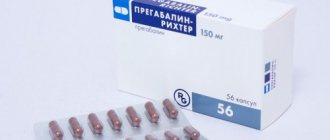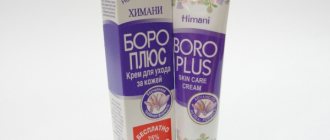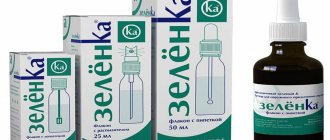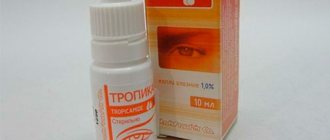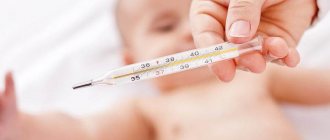Lyrica with the active ingredient Pregabalin is a drug that is used in medicine to relieve seizure symptoms. Drug addicts buy it to get euphoria. Addiction to pharmaceutical products requires long-term treatment.
Lyrica is the trade name of Pregabalin. The drug is relatively new and has not been studied enough. Related to this is the difficulty of treating pharmaceutical addiction. According to observations, addiction to Lyrica is in no way inferior to Salt, Opioid, and Cannabinoid.
The drug is sold in pharmacies with a prescription, which, according to the legislator, limits its free circulation among the population.
General information
The active ingredient of the drug is pregabalin, a synthetic analogue of gamma-aminobutyric acid (GABA). In medicine, it is prescribed to eliminate signs of dysfunction of the central nervous system, as well as as an anesthetic in the postoperative period.
Thanks to its anticonvulsant and analgesic effect, the drug has spread among drug addicts. They used it to relieve withdrawal symptoms. When the dosage was exceeded, a narcotic effect was detected - an increase in mood and a feeling of euphoria.
Pregabalin is indeed necessary for patients suffering from epileptic seizures and severe pain symptoms, but not during drug withdrawal.
Many users note that the effect of the drug is vaguely similar to an opioid, but the feelings are more varied and there are fewer side effects. Heroin and methadone addicts, trying to quit the drug, eliminate withdrawal symptoms with Lyrica, but this is not a solution - this drug causes a new addiction.
Medical uses of Lyrica
Lyrica is a drug with antiepileptic and anticonvulsant effects. In addition, doctors prescribe it for neuropathic pain and anxiety disorders. Patients suffering from fibromyalgia (chronic diffuse musculoskeletal pain) report relief when taking this medication.
For people with epilepsy, nervous system disorders, and panic attacks, using Lyrica also helps them return to a relatively normal state.
The effectiveness of pregabalin has been proven for diabetics with neuropathy and patients with postherpetic neuralgia. Lyrica is also used after operations as a strong analgesic and as an antidepressant. The drug is available in dosages from 25 to 300 mg, the package contains from 14 to 100 capsules. In the instructions for use, a warning is highlighted in a special font that the medicine can quickly provoke addiction.
History of creation
The medicine was created by an American pharmaceutical company in the late 90s. Initially, the drug was intended for the treatment of epilepsy. Pharmacists indicated the absence of significant side effects. But by the early 2000s, it became known that one of the accompanying effects of Lyrica is mild euphoria. This has caused many users to increase their dosage. Then the substance began to be used for recreational purposes. Currently, the drug pregabalin is available only by prescription in many countries around the world.
Effect on the body
Pregabalin binds in the body to an accessory subunit of calcium channels in the central nervous system, which explains its anticonvulsant and analgesic effects. The incidence of seizures decreases within 7 days of starting the medication. Lyrica also affects opioid receptors, resulting in a euphoric effect.
The duration of the narcotic effect after taking a portion of Lyrica above the medicinal dosage (from 300 mg) is 6-7 hours. However, with the parallel use of psychoactive substances and alcohol, the effect is prolonged.
Physiological symptoms
In a state of drug intoxication, the following physiological signs are observed:
- increased sweating;
- constricted pupils (miosis);
- increased sexual desire;
- prolonged sexual intercourse;
- impaired coordination of movements;
- feeling of heaviness in the body.
Psycho-emotional manifestations
Emotional sensations after taking a narcotic dose of Lyrica:
- mood improves;
- anxiety decreases;
- talkativeness and sociability, unusual for a consumer in a sober state;
- sometimes hallucinations appear.
Under the influence of pregabalin, a person feels relaxed, shyness and tightness disappear even when communicating with strangers.
Literature:
- Delinquency of “Pharmacy drug addiction” as a determining factor in strengthening control over the circulation of medicines / Zhukovsky Vladimir Ilyich, Dovgolyuk Natalya Vladimirovna / 2022 / Humanitarian and legal research.
- Clinical manifestations of new potentially dangerous psychoactive substances during a medical examination for intoxication / Myslivtseva Anna Vladimirovna, Malyshko Elena Vladimirovna / 2022 / Chief physician of the South of Russia.
- The problem of pharmacy drug addiction in Tver / Inzhevatova A.E., Minakova Yu.E., Morozov A.M. / 2022 / FORCIPE
Need some advice?
OR CALL A DOCTOR
CALL!
+7
Signs of an addict
You can recognize a person who abuses Lyrica by the following signs:
- constricted pupils;
- redness of the conjunctiva of the eyes;
- unsteady gait, as if it is difficult for him to move;
- excessive excitability;
- sudden mood swings - from calm to aggression;
- drowsiness;
- indifference to the surrounding world;
- sweating;
- skin diseases: rashes, ulcers on different parts of the body;
- tremor of the limbs;
- weight loss;
- severe swelling on the face;
- shortness of breath, non-productive dry cough;
- slurred speech;
- increased libido.
Pregabalin addicts are characterized by behavioral changes:
- sharp reaction to stimuli;
- absent-mindedness;
- fits of rage;
- panic attacks;
- depressive states;
- memory loss;
- lack of concentration.
Who's at risk
Lyrical drug addiction is considered the scourge of youth and teenagers. Addiction robs the younger generation of health and creates an incorrect worldview. Those who abuse Lyrics ruin their fate from a young age. In the future, they do not achieve success in life, which becomes a condition for the development of severe drug addiction.
People receiving Pregabalin as a therapeutic drug should be treated with serious caution. They may become drug addicts unwillingly if they have a genetic predisposition to addiction. Their mechanism of resistance to stimulants is weakened and they quickly get used to them.
Children in informal groups should be subject to special parental control. In these communities, taking stimulant capsules is common. It is necessary to monitor the condition and behavior of the children in order to understand the impending danger in time.
Harm of the drug
People who use Lyrica as a drug experience the following side effects:
- development of a stable addiction that is difficult to get rid of on your own;
- loss of strength, constant desire to sleep;
- decreased visual acuity;
- decreased mental activity, short-term memory loss;
- disturbance of consciousness: confusion of thoughts, inability to concentrate on anything;
- headaches, migraines;
- swelling under the eyes;
- long-term inactivity - the consumer sits in place for hours and looks at one point;
- fainting, loss of consciousness;
- myoclonic spasms;
- delirium, inappropriate thoughts and actions;
- damage to the skin and teeth;
- depression, thoughts of suicide.
The occurrence of side effects does not depend on the duration and frequency of taking Lyrica in narcotic doses. Even after the first dose of the drug, after an elevated mood, a person faces negative consequences.
Professional call center
Our consultants have gone through the school of addiction, they know everything about treatment, why breakdowns happen, and how relatives should behave. We provide psychological services if necessary
8
Free consultation 24/7. Call or leave a request
Lyrica: overdose and side effects
Long-term use of this drug causes addiction (a decrease in the main effect of normal doses), which leads to the need for a gradual increase in dosage. If this process is led by a doctor, he will cancel or replace this drug with a similar one in time. If the amount of the substance is increased by the patient independently, then overdose and drug poisoning may occur.
Specific symptoms of overdose while taking Lyrica are as follows:
- Neurological disorders. Severe drowsiness and stupor, dizziness when moving and at rest, various types of headaches, absent-mindedness, lack of accuracy of movements - incoordination. Forgetfulness appears, trembling in the limbs, loss of parts of the visual field, specific neurological symptoms - nystagmus (pendulum-like oscillation of the eyeballs), lacrimation, convulsive twitching, lack of appetite, impaired taste. In more severe degrees of Lyrica overdose, a stunned state may develop - stupor, turning into stupor, or complete loss of consciousness - coma.
- Disorders of the functions of internal organs. Most often, the depth and frequency of respiratory movements change, pronounced heartbeat (tachycardia) and changes in blood pressure develop. In some cases, the gastrointestinal tract suffers (flatulence, constipation, diarrhea, pain).
- Mental problems. Some patients experience a pronounced version of high spirits – euphoria, which over time turns into confusion. For some, irritability, fears, panic, and an influx of frightening illusory and hallucinatory experiences predominate. Another group of patients attracts attention with the development of a depressive state.
Without assistance, complaints caused by an overdose of Lyrica can lead to the development of pneumonia, acute forms of pulmonary and heart failure, psychoses, terminal conditions, and clinical death.
Consequences of long-term use
With long-term use of Lyrica for recreational purposes, consumers face the following complications:
- The cardiovascular system suffers: increased heart rate, blood clots form in the vessels, arrhythmia, insufficiency of cardiac function;
- Respiratory organs: dry nasal mucosa, itching, nosebleeds, swelling of the larynx and lungs, pneumonia;
- Gastrointestinal organs: vomiting, development of gastritis, high stomach acidity, ulcers, colitis, dysbacteriosis; pancreatic diseases;
- Urinary system: renal failure, involuntary urination;
- Liver: cirrhosis, development of failure;
- Eyes: dryness, burning, decreased visual acuity;
- Musculoskeletal system: destruction of muscle fibers, pain in the limbs, tremors, convulsions, joint damage;
- Immune system – the body’s resistance to infections and viruses decreases;
- Reproductive organs. In women, the menstrual cycle becomes disrupted, chest pain appears, ovarian function decreases, and infertility develops. In men, erection is impaired and impotence develops;
- Cognitive disorders: memory and attention are lost, intellectual abilities are reduced, the person degrades.
Abuse of pregabalin also affects the mental state: apathy, depression develops, and there is a risk of developing schizophrenia. Some mental problems remain even after drug withdrawal and addiction treatment.
Effects on the cardiovascular system
The disorders are quite noticeable:
- Blood pressure rises. Jumps in pressure are possible.
- Heart rhythm disorders develop. First, like tachycardia, then more and more noticeable. For example, group extrasystoles, fibrillations and others.
- Pain in the chest. Burning, pressing and others.
It is necessary to begin treatment for addiction as soon as possible. Because when taking Lyrica, ischemia increases every day. The heart does not receive enough oxygen and nutrients. Consequently, the likelihood of heart attack and coronary insufficiency increases. Possible death from complications.
Drug overdose
An overdose of pregabalin is characterized by the following symptoms:
- nausea and vomiting;
- cardiopalmus;
- headache, dizziness;
- incoherent and slurred speech;
- anxiety;
- weakness throughout the body;
- sweating;
- labored breathing.
Main reasons
Addicted users may overdose on Lyrica for the following reasons:
- development of tolerance to the drug - absence of narcotic effects when receiving previous doses;
- desire to intensify or prolong drug intoxication;
- combination with alcohol, psychotropics and opiates;
- deliberate use of a large dose as a suicide attempt.
First aid
If you notice the first signs of Lyrica intoxication, it is important to immediately call a doctor. Before the doctors arrive:
- give a large amount of water to drink, try to induce vomiting;
- open the windows in the room, provide access to fresh air;
- in case of severe weakness and loss of consciousness, place the victim in a safe position - on his side;
- monitor your breathing and heart rate.
It is strictly forbidden to give any medications, especially alcohol and drugs.
Health care
After hospitalization, the patient is assessed and detoxified from Lyrica. Doctors use the following methods:
- gastric lavage and bowel cleansing with deep enema;
- purpose of sorbents;
- infusion therapy: droppers with saline solution, potassium supplements and vitamins;
- forced diuresis: diuretics (in the absence of kidney disease);
- hardware methods of cleaning the body: plasmapheresis, hemodialysis, hemosorption;
- symptomatic therapy taking into account the patient's condition.
If respiratory function is depressed or loss of consciousness occurs, doctors begin resuscitation measures and connect the victim to a ventilator.
Consequences of lack of help
The danger of consequences of lack of timely assistance depends on the severity of intoxication and the health status of the consumer. A severe overdose can result in severe disability, coma, respiratory arrest and death for the patient.
Lethal dose
For Lyrica poisoning, it is enough to take 2-3 tablets of 300 mg of the substance.
The lethal dose of this drug has not been precisely determined. For people taking the drug for the first time and having problems with the kidneys and liver, the lethal dose may be 600 mg. Experienced users will need a higher dose. Often, addicts use Lyrica tablets with alcohol to prolong and increase the effect of drug intoxication. This combination can be fatal.
How to terminate
Pregabalin does not have a specific antidote. The effect will last until the substance is completely removed from the body. To speed up the process, you can perform gastric lavage, give an enema, drink sorbents and plenty of water.
Prevention of Lyrica addiction
Preventive measures play an important role in the fight against drug addiction. They should cover all spheres of public life: family, school, educational institutions, sports and creative centers, medical institutions, law enforcement agencies, social services.
Explanatory lectures and reports will help young people understand how pregabalin works and what consequences its use has for health. Perhaps it is this knowledge that will keep a teenager from taking the first dose for company or out of curiosity.
The media, television, social networks and other popular Internet resources should not stand aside from the fight against drug addiction. The spread of Lyrics in modern society can only be countered by common coordinated actions of all interested parties.
Law enforcement agencies must not only identify and punish unscrupulous pharmacists and dealers selling pregabalin, but also take part in preventive measures.
On the shoulders of teachers, educators and parents lies the responsibility to closely monitor adolescents, identify risk groups and early manifestations of addiction. Detecting addiction at the initial stage and timely contacting a narcologist is the key to complete relief from the disease.
The older generation, who are exposed to the effects of narcotic dope, should not be overlooked. Anyone who is ready to try it should know about the two sides of this addiction: the imaginary temporary euphoria and the darkness of the hopeless search for a new dose. It is always important to remember that at any age, addiction causes irreparable damage to a person, and for a fragile young body, the harm of Lyrica doubles.
Withdrawal
Withdrawal after discontinuation of Lyrica is accompanied by the following symptoms:
- persistent insomnia;
- anxiety;
- mood swings;
- pain in the head;
- irritability;
- nausea, diarrhea;
- tremor;
- tachycardia;
- hypertension.
During withdrawal, a person experiences an obsessive craving for using Lyrica. In individuals with a history of long-term use of opioids and opiates, discontinuation of pregabalin may result in craving for these drugs with a high risk of relapse.
Danger of consumption methods
Lyrica is taken orally. After swallowing the tablets, the maximum level of pregabalin occurs after 1 hour, and if the substance is taken with food, the onset of the narcotic effect is delayed by 2-2.5 hours. Delayed onset of action is a risk factor for overdoses, as a person tries to quickly become intoxicated and takes higher doses to achieve this.
Sometimes there are cases of excessive use of Lyrica in officially unapproved ways (inhalation through the nose, intravenous injections). This is extremely dangerous, since in addition to drug addiction, the risk of fatal overdoses, local inflammatory and suppurative reactions (with injections) increases.
How to ease withdrawal symptoms
Abstinence treatment should be carried out in a hospital. To relieve withdrawal symptoms, an important task is to detoxify the body from the drug. For this purpose, infusion therapy is used in combination with forced diuresis. Extracorporeal blood purification methods may also be prescribed: plasmapheresis or hemodialysis.
Symptomatic treatment of withdrawal involves taking medications:
- for hypertension, clonidine is prescribed (the drug has a parallel sedative effect);
- for depression and psychotic disorders - antidepressants;
- for heart pathologies, tachycardia - cardiac glycosides, anxiolytics;
- for liver damage - hepatoprotectors;
- to restore mental and nervous activity - nootropics, B vitamins;
- for general improvement of the condition - vitamin and mineral complexes.
After the drug is removed from the body and withdrawal symptoms disappear, the patient undergoes psychological rehabilitation.
Why is Pregabalin dangerous?
Due to the fact that the drug is positioned as a pain reliever, until recently it was freely sold in the pharmacy chain. This contributed to the emergence of many addicted to the drug and served as the reason for the ban on its sale without a prescription. But now it is possible to purchase capsules in nightclubs and other places where young people hang out.
The effect of narcotic capsules gives a person euphoria and satisfaction with life. If Lyrica is used in combination with alcohol, the high increases, but the consequences after such pleasure can be catastrophic for health. The cardiac, respiratory and nervous systems suffer, and internal organs begin to function in a pathological mode. The body receives powerful intoxication, which causes its destruction. The psychological status changes, the person gradually degrades.
Analogs and their dangers
In different countries, drugs with the active substance pregabalin are used under different trade names and with different dosages:
- Algerica;
- Galara;
- Habana;
- Ligato;
- Zonic;
- Linbag;
- Replica;
- Paphia;
- Pregabio;
- Neogabin.
These medications have a similar effect to Lyrica and have a high potential for addiction when used for recreational purposes. They are not sold in pharmacies without a doctor's prescription.
How does Lyrica work on a person?
If you take the medicine for a long time, physical and mental dependence will appear. The effect of a pharmaceutical drug is comparable to that provided by heroin. Euphoria, pleasant relaxation, distraction from difficulties and problems - it is for these properties that the drug is so valued by drug addicts.
It should be noted that if you use Pregabalin according to the instructions and for a short course, it will not have a negative effect on the body. Problems arise only when the medicine falls into the hands of drug addicts who do not want treatment.
In Russia, you can buy pills in a pharmacy strictly according to a doctor’s prescription, but drug addicts find ways to circumvent the law.
How addiction is formed
Every addiction begins with a stage of trial and experimentation. Users then choose one of two decisions - never return to drugs again, or continue experimenting. The second way is the development of addiction, which occurs in several stages:
- Experimentation. At this stage, a person tries the drug for the first time in order to gain new emotions and feelings. This often happens in clubs, and often the first attempts are made while intoxicated. There is a desire to repeat the use in order to obtain euphoria.
- Regular drug use. Psychological addiction begins to develop, the consumer regularly takes Lyrica and receives the desired effects. Tolerance appears - previous doses do not give pleasure, the addict increases the dose of the drug.
- Addiction. All actions and thoughts of the consumer are only around the drug. After the substance wears off, withdrawal symptoms begin. Even high doses of Lyrica do not provide initial pleasure. A person continues to use in order to get rid of withdrawal symptoms.
At this stage, there is a high risk of overdose, parallel use of alcohol along with Lyrica to enhance the “effect,” trying other drugs, and developing polydrug addiction.
The addict completely degrades, loses social and family connections. The state of health deteriorates significantly. It is impossible to get rid of addiction on your own at the final stage, but such patients are provided with help in rehabilitation centers.
Stages of getting rid of cravings for Lyrics
Overcoming cravings for any drug is a very difficult path that you can rarely go through on your own without specialized help. Complex treatment in stages:
- The first stage is awareness of the problem.
Many people believe in false statements that if Lyrica is one of the approved medications, then it does not have any narcotic effect on the body. It is difficult to convince a person otherwise, but it is necessary for successful healing. Here you will need the support of family and friends, consultations with a narcologist and a psychotherapist. The goal of all activities is to obtain the patient’s voluntary consent to further therapeutic course. - The second period includes examination, counseling, detoxification, and medication support.
To draw up a plan for the necessary medical procedures, the doctor examines the patient’s physical condition and the presence of concomitant diseases. An integrated approach to the treatment of addiction to the drug Lyrica allows you to remove toxins and breakdown products of ethyl alcohol, relieve symptoms of withdrawal, normalize well-being, and restore the body’s immune strength. - The third step is rehabilitation and psychotherapeutic support.
The recovery period is recommended to take place in specialized centers away from drug addict friends and various temptations. Among people with the same difficult situations, under the supervision of health workers, the path to healing will be easier and faster. For those recovering in rehabilitation institutions, various interesting activities, sports activities, individual and group psychotherapy sessions, massage, physical therapy, etc. are available.
Only this approach minimizes the risk of relapse and allows you to get rid of addiction in the shortest possible time.
Rehabilitation
Lyrica addiction therapy includes:
- measures to remove the drug from the patient’s body;
- restoration of physical health, treatment of damaged organs, obtaining minerals and vitamins;
- psychological rehabilitation of patients: work with psychotherapists and psychologists to overcome mental attachment to drugs;
- resocialization – the return of a former addict to society.
The most difficult and lengthy stage of treatment is psychological correction, which involves preventing relapse, restoring personal qualities, and developing a sober lifestyle.
Why you can’t treat yourself at home
Attempts at self-treatment for drug addiction in most cases end in failure. Patients need qualified care and support from specialists.
At home, it is much more difficult to survive withdrawal, independently understand the cause of drug addiction and find effective motivation for complete cessation. Often relatives and close people do not have enough arguments to convince the consumer of addiction treatment. Even if you successfully overcome withdrawal, there is a high risk of returning to drugs.
Resocialization
The final stage of Lyrica addiction treatment is the patient’s return to society. To achieve this, psychologists and employees of rehabilitation centers help:
- find new interesting interests and hobbies;
- set new goals;
- resume work;
- find a new profession;
- find a new circle of friends;
- enroll in studies;
- learn to enjoy life without drugs.
Many centers continue to support former patients, helping with enrollment in studies, finding housing and work after discharge from the clinic.
How to quit on your own
To quit Lyrica on your own, the main condition is to have a clear and firm desire to quit the drug forever. An important stage of home treatment is overcoming withdrawal symptoms. To ease this period, it is recommended:
- increase your drinking regimen to 2-3 liters per day;
- take care of proper nutrition, forget about junk food;
- give up not only Lyrica, but also alcohol and other drugs;
- stop communicating with other addicts and companies in which the drug was used;
- for insomnia, take light sleeping pills;
- for increased excitability, apathy, anxiety - soothing decoctions;
- to improve health - vitamin and mineral complexes.
Relatives are advised to support the addict, ensure a calm environment at home, eliminate any irritants, prevent the occurrence of stressful situations, in order to avoid a breakdown.
In case of severe and long-term addiction, as well as in case of Lyrica overdose, therapy should be carried out only in a hospital under the strict supervision of narcologists and psychologists.
What does an overdose look like?
An overdose of Lyrica is determined by the following symptomatic picture:
- the addict stops seeing and realizing what is happening;
- he becomes sleepy, passes out or loses consciousness;
- his body temperature rises;
- profuse sweating appears.
The patient may not recover from the unconscious state without professional help. This is associated with cardiac arrest and cessation of respiratory functions.
